Kent Dairy Company's MD Dave Terry has learnt something new every day since transforming his one-man operation to a fleet of 15 vehicles. John Maslen reports.
Thousands of growing small-to-medium enterprises (SMEs) throughout the country face the daily challenge of stretching resources to meet the expanding needs of their businesses.
With companies often developing from a one-man band, owners have to specialise in everything from sales to book-keeping, and running vehicles is often an additional critical role.
Kent Dairy Company managing director Dave Terry has direct experience of balancing these competing pressures as he has developed the dairy distribution business from a ‘one man-one van’ operation, launched in 2010, to a multi-million-pound company.
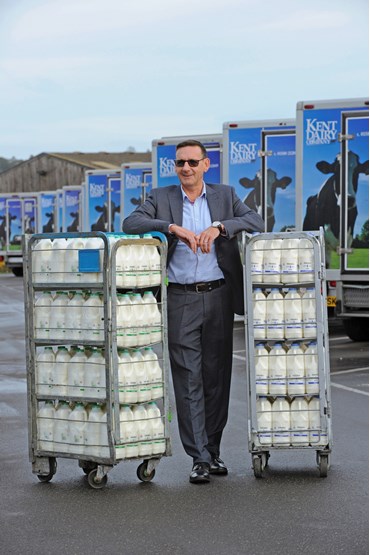
Back in 2010 he started each morning with deliveries, then spent the afternoons using his sales skills to gain potential new customers.
Kent Dairy Company now has a customer base stretching across hundreds of square miles of the south of England, including London, providing products through a partnership with dairy supplier Pensworth.
That growth has brought challenges and opportunities, as Terry has taken the business from a single vehicle to a substantial fleet with 15 vans, six 7.5-tonne lorries and two 12-tonne HGVs.
READ MORE: London Borough of Hackney: Council is ‘keen to push the boundaries’ with EV
Transport is at the heart of the business, as it delivers dairy products including milk, eggs, cream and cheese to more than 1,200 customers, including schools and businesses, with vehicles covering more than a million miles a year.
With a fuel bill of around £5,000 a week, operating an efficient and effective fleet is critical to maintaining profitability in an industry renowned for its tight margins.
However, as the business is only as good as its last delivery, it needs to balance the need for efficiency with delivering on time to customers every day, no matter what the challenges are.
Terry, whose first job was as a milkman, has more than 30 years’ experience in the fleet sector, ranging from the dairy industry to contract hire and leasing, which provided a strong foundation on which he could build the fleet and the business.
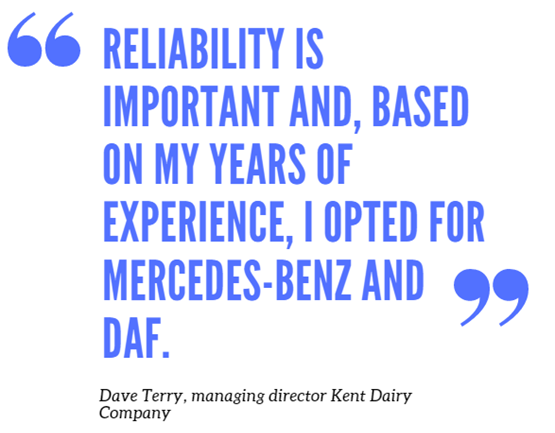
However, despite this, he has had to learn to adapt to the varying challenges that running a dairy distribution business brings, from vehicle strategy to people management.
He says: “You can learn something new every day in this job because there are so many unforeseen events. We have to deliver and work around any issues that occur.”
Terry’s extensive experience in the fleet sector has helped focus his decision-making when it comes to sourcing reliable vehicles.
The fleet operates Mercedes-Benz Sprinter vans and DAF LF trucks and lorries.
Terry says: “Reliability is important and, based on my years of experience, I opted for Mercedes-Benz and DAF.
READ MORE: Fleet spotlight: VPS Group
“The DAF is a good, solid piece of equipment and, with its breakdown cover, if you have a problem, you know DAF will get it running. Similarly, the Mercedes-Benz Sprinter is the best of vans, backed by its roadside assistance.”
Rounds start from as early as 1am to beat congestion in busy urban centres, including the capital, so it is essential to have the guarantee of good back-up if there is a problem.
Drivers are fully briefed
Terry takes this approach with other suppliers, including the company’s contract hire and leasing provider, Sunrent (part of Prohire), where he worked in a previous role as operations director.
He adds: “I wrote their procedures on how they deal with customers when I was operations director, so I know how they focus on good customer service.”
Vehicles are just one part of the equation for successful business growth; drivers make up a second key element and their role can make the difference to maintaining business profitability.
This means it is critical to spend the time and energy to find the right staff, particularly drivers.
Terry says: “When we employ a new driver, we give them a really clear picture of what we expect.
“With start times between 1-5am, we brief them about the job and our expectations, then they are sent away to think about the job and its demands and discuss it with their families prior to starting.”
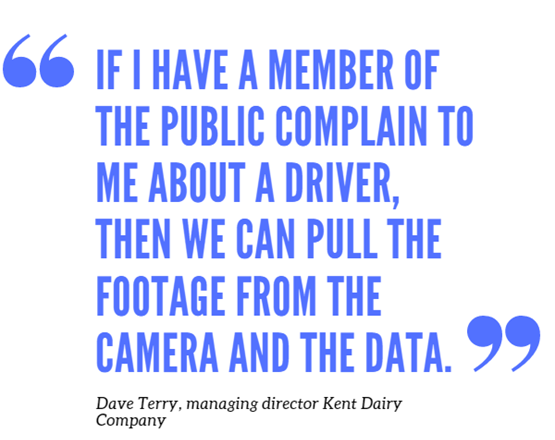
When new drivers join, Terry insists on at least a week and a day of training on the delivery round they will be covering, which is spent with an assessor.
He adds: “We don’t allow them to go out blind; they do the route and they also need to learn all the products and other elements of the role, such as where they need to go for deliveries, so they don’t lose time searching for the right place.”
Additional induction elements include areas such as the chemicals used for vehicle cleaning so every aspect of safety is covered.
The delivery team is supported by six supervisors, half specialising in lorries; the rest, vans. Terry tries to match trainers with drivers of similar personality types, to avoid clashes that could interfere with learning.
“There is an element of psychology, so I will ask questions that build up a picture of the driver, such as favourite food or favourite movie and so on,” he says.
Every new employee is put on a six-month probation to ensure good practice is maintained in the long-run.
To support the face-to-face focus on safety, the business also invested in telematics and dash-cams several years ago, which has enabled new procedures for managing incidents or any complaints from the public or customers.
The system also monitors the cargo areas of each vehicle, to reassure customers that goods are being transported at the correct temperatures.
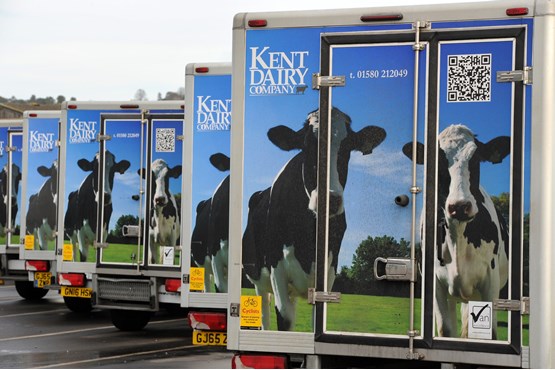
Checking procedures in place
The VeriLocation system provides important insight into driver behaviour and also acts as a defence against inaccurate claims against drivers following incidents.
“If I have a member of the public complain to me about a driver, then we can pull the footage from the camera and the data,” Terry adds. “It is a very good management tool.”
Minor events, such as harsh braking, generate an email to the office to keep the team updated and they can then review data on the web-based system.
For serious incidents, a more detailed policy has been put in place.
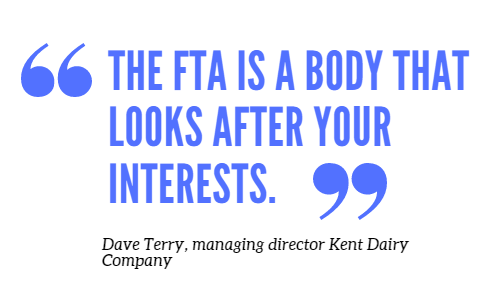
Terry says: “Following a big incident, my management team would carry out breath tests and drugs checks. We also remove the live data card from the vehicle, so it won’t get lost or removed, and that begins our incident investigation.
“Having the data card means that if the vehicle has a problem transmitting, then you still have access to all the information about the incident.”
When vehicles are damaged, repairs are carried out with local suppliers to avoid recharge costs when they are returned, while drivers can face penalties for the cost of repairs.
Terry says: “We aren’t delivering gold, but they do need to drive in a safe fashion and we need to make a margin at the end of the day.”
As the business has grown, more resource has been added to the vehicle management team to help with service, maintenance and repairs, along with minimising downtime when vehicles are with suppliers.
As vehicles are contract hired, the leasing company also proactively updates the business on when servicing is due, based on regular mileage updates provided by the fleet.
Kent Dairy Company works closely with its service partners and with industry bodies to identify best practice opportunities.
READ MORE: DAF Trucks: New DAF MD brings global insight to UK
This includes RBS Mentor, from Royal Bank of Scotland, which offers expert advice on employment law, HR, health and safety and environmental management.
The business also gets support through the Freight Transport Association (FTA), and Kent Dairy Company’s focus on effective management has seen the fleet become the first dairy distribution company to achieve Van Excellence.
The business has benefited from a focus on adhering to the Van Excellence standards, as it has instilled a broader safety culture throughout the business, Terry says.
He adds: “It is a very high standard for operating a van and as we started putting procedures in place, you could see behaviour and attitudes changing.
“Making sure that procedures are followed is something that changes the culture – and that is better for customers and drivers. There is just more care around the business.”
The role of FTA extends to other areas of the business as well, as Kent Dairy Company uses the FTA fuel card service, which offers cost savings through discounted fuel prices and interest-free credit.
Terry adds: “The FTA is a body that looks after your interests. Our fuel costs are around £5,000 a week. I tried to buy fuel on my own and you just see costs rising week on week because, unless you ring and object, it just goes up. You can’t be there to ring suppliers every week if you have to run the business.”
Using fuel cards provides essential support in protecting margins within the business and Terry is looking at future fleet strategies that will drive further efficiencies as the company grows.
This includes altering the fleet to increase the number of larger vehicles, which goes against the recent trend of companies downsizing from lorries into large vans to avoid operator licensing restrictions.
Driving efficiencies
Terry explains: “We plan to reduce the number of vans and increase the number of trucks. There isn’t much more cost to a truck, but you can move a lot more, which can triple your margin.
“It costs about £112 a week more, but you can move two tonnes extra. When costs go up, you can’t just keep passing them on to the customer because, eventually, they will move.
“You have to find efficiencies. Margins are much lower for vans because of their limited carrying capacity.”
One additional cost that will be incurred is higher wages for lorry drivers, but this reflects the training and skill levels required for larger vehicles.
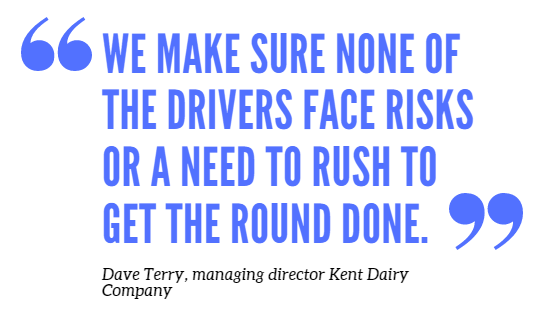
This, in turn, could reduce incidents, as Terry argues that all businesses are affected by a small percentage of van drivers who take risks on the road despite the fact that they have been extensively trained.
He says: “It is the 5% of drivers who incur all the costs and often they perform well when being instructed, then when they get in a van on their own, they are completely different.”
The business prides itself on its flexibility, taking next day orders up to 11pm, but it also ensures that drivers are never put under pressure because workloads are too great.
“When we take a new call, everything is negotiated with the driver and supervisor that knows the round. We make sure none of the drivers face risks or a need to rush to get the round done,” Terry says.
“With continued investment in the right technology, equipment and, most importantly, people, customers receive the best service possible. Our motto is ‘if Kent Dairy Company does not take care of its customers, someone else will’.”
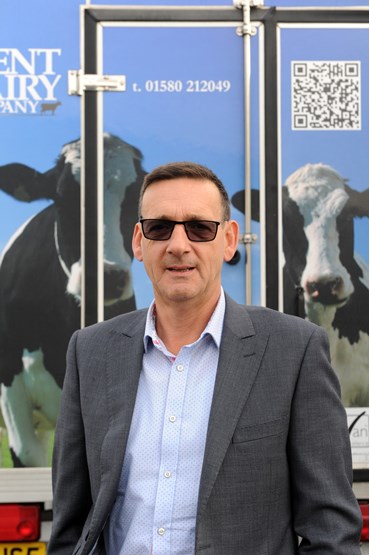
Rogue drivers pose the biggest risk to businesses
Growing companies need to employ new people and in the delivery industry this can expose them to substantial risks.
Although new drivers may behave in a certain way to secure a job, this can’t guarantee their performance when they leave the depot on unsupervised journeys.
Despite extensive training for every driver, Kent Dairy Company has been affected by rogue drivers who ignore their advice, then cause extensive damage to vehicles and subsequently leave their role.
Terry says: “Some drivers turn up, we test them extensively and they behave themselves, then when they are trained to do the job, they go out by themselves and behave like lunatics.
“They cause damage then disappear and they are never accountable, but they will then go somewhere else and do it again. This is a national issue and it costs businesses dearly. It is a road safety issue.”
A tiny number of drivers can incur thousands of pounds worth of costs, typically in single vehicle incidents.
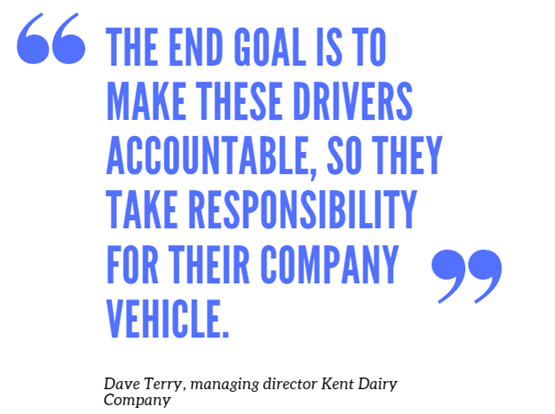
Terry is calling for a national database for insurers, with damage claims in corporate vehicles linked to a driver’s personal insurance history.
Terry says: “One massive claim could shut the business down. One day a new driver could leave the depot and put you out of business. Something needs to be done about this and I will be taking it to my MP.”
A national database would ensure there was more accountability, but it would also provide companies with an element of protection from rogue employees.
Terry adds: “Businesses are the losers in this and drivers will just go and get in another vehicle at another employer and not learn from their experience.
“There should be a national database with a log of their accidents that could be accessed by insurers and used to calculate their personal vehicle insurance.
“The end goal is to make these drivers accountable, so they take responsibility for their company vehicles, as it could impact on their personal insurance.
"An insurance company should know if a driver has caused £20k of damage to a vehicle.”
















Login to comment
Comments
No comments have been made yet.